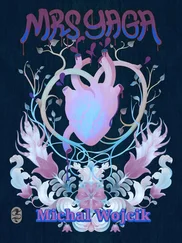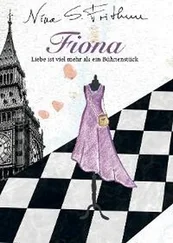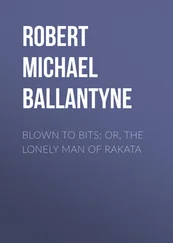You counted calories at every meal. I should have been annoyed. Instead, I found in displays of your self-hate compassion for my own.
You made love not as a man who wants to be hurt but as a man whose tenderness dredges the sex of whatever psychic drama I could bring to bear on the event. It was sweet and loving. It was safe.
You’d stretch your arms overhead and loop them round my waist on the way down so that I could not move, could not breathe in anything but you.
You’d complain about your heart but never go to the doctor. And then I’d worry about your heart.
You’d complain about my litany of gripes against you but never leave. We had a baby. You said, Let’s not wreck this baby the way we have been wrecked, and then we went ahead and wrecked everything.
We had one year, twelve weeks, and three days together. The more you struggled to be a good man, the more I believed you were. And then, disastrously — gloriously — I loved you.
36. And so, yes, when I found out about the other women, I was shocked. Less that I had been betrayed, but that I had chosen this for myself. That somewhere along the way, I had decided to protect and love and believe in a person designed to betray me. What a horror. I shut down completely. As ironies go, when I did have a thought of even modest refinement, it was about how to absolve you. This crisis in my life had me groping for the person in whose betrayal this crisis was born. Who else did I have to talk to? I went to a professional. The professional said: You need to stop loving this person. You have to want to stop loving this person. I was thunderstruck. Why should I stop loving someone who is lovable? A dreamer, a sufferer, a guy who’s all heart? Because he treated me badly? I hadn’t treated him especially well, either, though he did not know it. I was confused. I had so many questions. Do we love people for how they treat us or for who they are? Is there a difference? I’d address these thoughts to the professional and she’d say: Enough with the horseshit. You need to stop loving this man and move out.
And I did. I could not do my job. I’d stopped providing information on you months before, and so, already, I was compromised. And now this. Also, some part of me understood that the next girl in line whose heart you were likely to assault was our daughter. I executed a maternal instinct, perhaps my last.
37. Lo, if I ever do find a way to tell Ida, and I will have to soon, what should I say? How am I to explain my part in this? And yours? Does she really need to know there are people out there who cannot help but destroy each other? Or that, for all my efforts to forget you, replace you, bury you, I have failed on all counts? I have been with many people since we split but have abandoned myself to none of them. Not even for a second. But I want our daughter to know different. I want her to think life is full of chances, not just one.
38. I have to stop writing now; it’s time for me to go. I hear Martin at the door, at last.
It was time for Esme to go, and yet: more waiting. She had called her voicemail; there was a message from Ida: she and Crystal were ETA five minutes. Her child had been having fits all day, and now that Crystal was in the game, insofar as Esme’s name had been pucked across every news channel in town, Crystal had refused to bide Ida while Esme raced to Cincinnati.
“I need another pen,” she said.
Martin gave her two. He was her only ally left, though ally overstated the extent to which he would have her back if called to testify. No doubt a hearing was in the works.
“What?” she said, because he was looking at her.
“Nothing.” And then: “You’ve got rosacea.”
“It’s called crying.”
Martin said, “You don’t have much time. The people downstairs can ID you if anyone asks.”
“No one’s going to ask until I’m long gone.” She appraised herself in the mirror. “Did you bring your kit? I need work here and definitely here”—and she touched the skin girding her eyes. It was less swollen now but still pink and almost translucent.
Martin was at it in seconds.
“Just natural,” she said. “Like me, but not ruined. Like a mom who’s ecstatic to see her child and has no other care in the world but her.”
“Right.” He stepped away. These figments of joy were not anything he could heap on the expression she wore now and had, in fact, worn every minute since Thurlow Dan kidnapped her team and stopped responding to the lead negotiator. Also, science says people will recognize a happy face before a sad one, but only if the happy face is congruent with the emotional context these people have experienced to date. So if Ida was going to register the sparkle in her mother’s look (beta lenses that pooled with light) or the bow tie of crow’s feet at both eyes (to simulate motion of the orbicularis oculi muscle, which engages when you smile for real), if Ida was going to see in his work indices of happiness, she’d have to have known something of happiness, which she manifestly had not. She was nine years old with one foot in the grave.
Try and fail, try again. He crimped gelatin into wrinkle lines; Esme flocked her chin; and together, in haste, they produced a face that was, if not ebullient, not a billboard of despair, either.
He packed up his kit. Esme turned on the TV. Thurlow Dan had not been heard from in hours. There was rumor of a ransom tape — Just tell us what you want! — and, circling overhead, choppers with boys humping the skids and gunning for this cult leader of national import. The hostages had been identified, their families called. Jim’s name had not come up, but already he had put the whole thing on Esme: Anonymous sources close to the White House say this has been a rogue intervention. It will be resolved amicably. The parties responsible will be brought to justice. Where are these parties? Hard to say.
“You want the Weather Channel?” Martin asked.
A blizzard was rolling in. Great time to hit the road. Visibility nil. Or at least the nil of snow pelting the windshield like rice when your ship clicks into hyperdrive. Nine hours to Cincinnati, going on 10, 15, 40. Reagan National had just closed.
“Animal Planet?”
She looked up and it was cops, and kittens who needed to eat. “No.”
He continued to flip until his flipping got on her nerves, so she said, “Give it,” only she was out of range, the remote didn’t work, and where the hell were Crystal and Ida? Then, at last: a knock at the door that returned her to the state she was in.
“Should I go?” Martin said.
“No. You can stay.” Though what this meant was, Please stay, because the reproach bound up in every word that would fall from Crystal’s lips, mingled with Ida and her needs — the audacity and insistence of her needs — would undo what chance Esme had to disarm the blast of fate that said she was going to give up on everything; why not start now?
“Mom!” The voice a squall and the child barreling into the room, headed for her mother but stopped short by the sight of Martin, who made her blushy and knock-kneed. Here was a man of such intimacy with her mother, she might have begrudged him the time except that maybe, for this intimacy, he was also her dad.
“Hey, kiddo,” Martin said, and tousled her hair, which was clipped on either side with ruby barrettes and not remotely inviting of a tousle, but what did Martin know? He had six brothers and an affenpinscher named Joe.
“Hi, muffin,” Esme said, and she twirled her finger in the air to encourage Ida to show off the new coat Esme had left for her this morning. Snow leopard with hot-pink satin lining. “You like it?” she said. “You look ready for Hollywood.”
Ida smiled but took off the coat and tossed it on the bed as though she’d caught whiff of a bribe. She was in blue leggings tucked into snow boots, and a cable-knit zip hoodie whose sleeves were too long and balled in either fist. Apparently, this was a stay against anxiety newly added to an arsenal of thumb sucking, teeth grinding, and rationing of her stuffed animals into family groups of three.
Читать дальше












